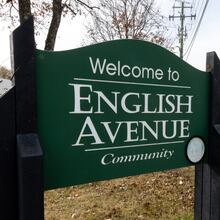Public attention to HIV and AIDS has lessened in recent years, but that hasn’t slowed a small Smyrna medical biotechnology firm’s pursuit of vaccines to prevent and treat the virus.
“Everybody thinks it’s under control,” said president and CEO Robert McNally. That’s because existing drugs can allow people who are HIV-positive to live nearly normal lifespans. But the oral medications are expensive and can have unpleasant side effects, and not all patients take them consistently.
Ultimately, McNally said, they “are not a good solution” because they don’t eliminate HIV.
While GeoVax Labs, founded in 2001, is still a developmental-stage business with only 13 employees, its progress toward finding a vaccine has the company, investors and federal health organizations hopeful.
In an assessment of the company’s prospects issued last month, investment research firm SeeThruEquity wrote, “We believe GeoVax is a leading candidate to develop the first viable HIV vaccine as its early findings look promising and it is the only preventative vaccine candidate proceeding into efficacy trials.”
Starting in 2014, GeoVax plans to conduct a clinical trial in which about 2,000 individuals, including some considered at high risk, will be vaccinated to test the ability of its vaccine to prevent infection. Another 2,000 people will serve as a control group. Previous safety tests of the vaccine have shown no adverse effects on people.
The trial, which will take three years to complete, won’t signal that the vaccine is ready for commercialization, even if it is found to be effective. But, said McNally, it would provide an inflection point for investors and attract the attention of big pharmaceutical companies that may want to buy into GeoVax. That would provide the funding and support needed to bring the vaccine to market, something GeoVax isn’t prepared to do by itself.
That moment might seem a long time off, but in the world of biotechnology, where research and testing take years, it’s not far away.
“It takes a long time to develop a vaccine. It has to be tested to be safe and effective. It can take anywhere from 10 to 15 years and can cost a billion dollars. Developing a new medicine is a risky business,” said Charles Craig, president of Georgia Bio, a non-profit organization that promotes the state’s life sciences industry.
GeoVax was launched out of work done at Emory University’s vaccine laboratory by Harriet Robinson, who now serves as the company’s chief scientific officer. Emory has a long history in developing oral medications for HIV/AIDS.
The value of the worldwide market for a preventative vaccine has been estimated at $4 billion annually. According to one estimate, 34 million people have HIV worldwide, with nearly 3 million new infections occurring annually. In the U.S., 58,000 people a year contract HIV.
For all its promise, GeoVax remains a risky play for investors. For that reason, and because of its potential benefit to the world’s health, the company has received about $50 million from the National Institutes of Health. Investors have put in about $15 million so far, McNally said. The company is publicly traded on the Over The Counter market.
Emory invested $750,000 in GeoVax and holds a 28 percent stake in the company, said Suzanne Hollinger, director of license and patent strategy at the Office of Technology Transfer at Emory.
“We did invest cash in this one,” she said, “which we don’t do with all of our companies. We thought it was a very exciting technology, eliminating HIV. We’re very excited about GeoVax. It’s one of our star companies.”
About the Author




